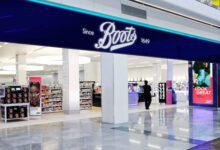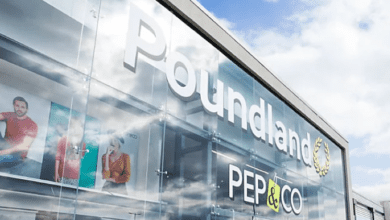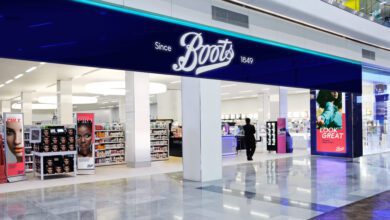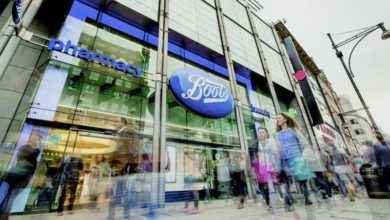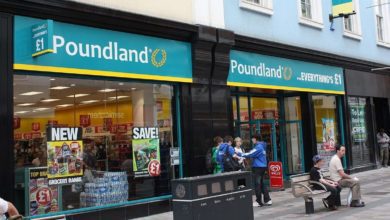Is going private the next big trend in retail?
As major retailers like Pepco and Walgreens Boots Alliance opt for private ownership, the sector sees growing interest from private equity firms. James Lyons, director at Lawrence Stephens, and Matt Dalton, consumer sector lead at Forvis Mazars, offer their insights on the drivers behind this shift and the strategic advantages for retailers considering private equity in today’s market
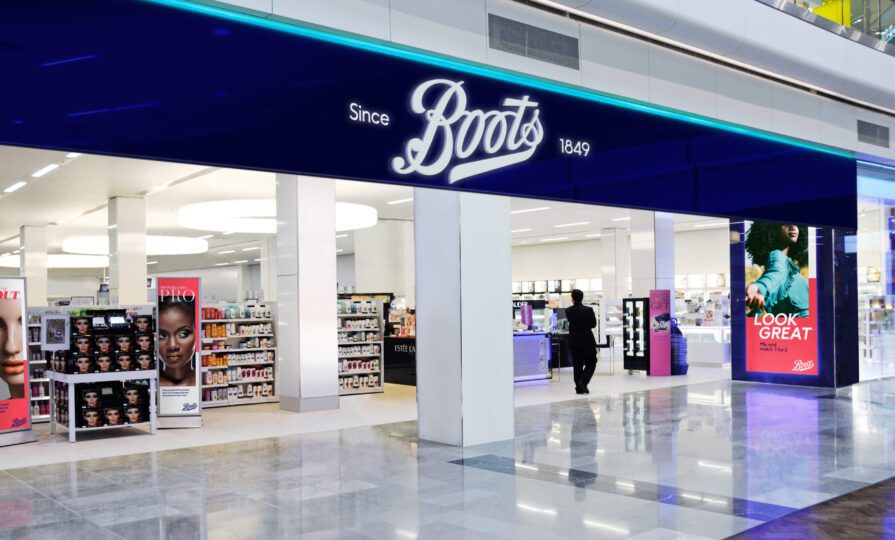
Walgreens Boots Alliance was acquired by the American private equity firm Sycamore Partners in a deal valued at up to $23.7bn (£18.3 billion). Around the same time, Pepco Group, owner of Poundland, received interest from potential buyers for its 825-store Poundland business in the UK. With major retailers opting for private ownership, are we going to see more retailers turning to private equity as a strategic move in today’s challenging retail landscape?
Over the past decade, the UK retail sector has experienced significant private equity activity, with numerous firms being acquired. For instance, during the pandemic, 123 UK companies, including retailers like Asda, were taken private, amounting to £36bn in value.
In 2021, the number of mergers and acquisitions (M&A) targeting UK retailers increased by 28% to 37 deals, driven by private equity-backed transactions and the growth of e-commerce. This trend continued in 2022, with 34 retail M&A deals announced, reflecting a 30% increase from pre-pandemic levels, with private equity firms playing a significant role. In 2024, retail M&A activity rebounded further, with 60 deals recorded, nearly doubling the previous year’s figure, as private equity investors sought opportunities amidst economic recovery.
The surge in private equity makes it seem like there’s a growing trend of retailers opting for private ownership. So what are the key drivers behind this private shift?
James Lyons, director in the Corporate and Commercial team at Lawrence Stephens, who provides advice on corporate transactions to entrepreneurs, management teams, SMEs, private equity funds and larger private and public companies, answers that question with one of his own…
“What are the advantages to a retail company of remaining a publicly listed company? If the business continues to benefit from access to institutional capital, stock liquidity, and the other advantages that come with a listing, then remaining public makes sense,” he says.
However, Lyons points out that the challenges of being publicly listed can sometimes outweigh these benefits. “The costs of listing, the scrutiny, and the increased pressure, especially with rising employer and NI costs, all add up,” he explains. “When those burdens become greater than the benefits, it’s easy to see why more retail companies are opting to go private.”
Forvis Mazars’ consumer sector lead, Matt Dalton, has also observed a noticeable trend in the market, with retailers increasingly turning to private equity or pursuing consolidation. According to Dalton, the reasons behind these moves can vary significantly depending on each company’s circumstances.
“With private equity, going private often allows companies to take a longer-term approach,” he explains. “They can adapt to market trends without the constant scrutiny of public markets and the pressure of shareholders watching their every move.”
Dalton notes the retail sector has been particularly volatile in recent years. “We’ve seen retailers perform exceptionally well during holiday periods, but other times can be more unpredictable. Being private relieves them of the stress of fluctuating stock prices and short-term investor expectations,” he says.
He also highlights that the value of commercial assets is another reason private equity is increasingly interested in the retail sector. “It’s not just about retail itself.” Private equity firms see significant opportunities to unlock value from real estate holdings,” Dalton points out. “Take Boots and Pepco, for example. There are plenty of other cases where struggling companies have been bought out, and their underlying assets have become a major factor in the deal.”
Moreover, Dalton observes a shift toward digital transformation. “With rising costs, including employment and apprenticeship levies, retailers are moving toward a stronger digital presence. Companies that have successfully embraced digital are often performing well,” he says. “Private equity can provide the capital and expertise to enhance technology, creating even more value in these businesses.”
Stating the advantages that private ownership offers retailers compared with publicly traded ones, Dalton adds: “Well, I think there are two main factors. First, there are fewer reporting requirements. Listed companies face extensive regulations, and the cost of compliance is only going up — we’re definitely seeing that.”
Second he talks about the flexibility that comes with private ownership. “When you’re private, you can be much more agile and adaptable. Capital events can happen faster with less oversight, and fundraising becomes simpler,” Dalton explains. “It also gives companies the freedom to adjust their strategy quickly, making them far more nimble in responding to market changes.”
With Boots now under Sycamore’s ownership, what lies ahead for the brand? According to Lyons, Boots’ fate as a brand will depend on how any potential spin-off is structured. “It’s interesting because Sycamore’s acquisition of Walgreens includes Boots, but that’s just one part of the wider business,” Lyons explains. “A number of commentators believe that Sycamore will likely spin off Boots to focus more on the US retail market.”
He adds: “It’s possible we could see Boots reappear on the public markets, perhaps through a demerger and a new listing in the UK. Alternatively, it could be sold to another private equity firm or a trade buyer.”
Despite the uncertainty, Lyons remains confident in the brand’s resilience. He says Boots is a “strong and well-established name”. “While it’s hard to predict exactly what form it will take, I’m sure the brand will endure,” he says.
As private equity firms show growing interest in the retail sector, Lyons explains that they focus on businesses with strong growth potential, especially those that present opportunities for a profitable exit within a three-to-five-year period.
“It’s about identifying where investment can generate increased returns over the next few years and ensuring the business is positioned for long-term sustainability,” Lyons says.
While the types of retail businesses attracting private equity vary, he notes that each investor has their own specific interests. “Take Boots, for example. Its pharmacy element is heavily regulated, which may be of interest to some private equity firms, but not necessarily to all,” he explains.
However, Lyons emphasises that businesses with a strong, sustainable online presence are increasingly appealing. “Retailers that can leverage technology to strategically enhance their business are likely to attract more private equity interest,” he adds. “Ultimately, the future of retail is moving towards digital, making it a key area for private equity firms, rather than traditional high street retail.”
Dalton also notes that a small but growing number of private equity firms are specialising in specific segments within the retail sector. “These firms are starting to really understand the challenges unique to those sub-sectors,” he explains. “For example, they might focus on issues like supply chain management, marketing costs, or operational improvements.”
He adds: “We’re seeing a number of smaller private equity firms emerging, firms that we haven’t seen as much in the past, and they’re bringing a more targeted strategy to the table.”

The performance of UK retailers acquired by private equity varies, as seen with Asda, Morrisons, and House of Fraser. Asda, acquired by the Issa brothers and TDR Capital in 2020, has faced significant competition in the UK grocery sector, focusing on improving efficiency and expanding its online presence.
Similarly, Morrisons, which was acquired by Clayton, Dubilier and Rice in 2021, has worked to restructure and streamline operations, navigating the pressures of an increasingly competitive market. Meanwhile, House of Fraser, acquired by Sports Direct (Frasers Group) in 2018, went through store closures and job cuts but has made efforts to rebrand and enhance its e-commerce capabilities.
While all three retailers have undergone some restructuring and faced challenges, private equity has played a key role in reshaping their strategies and focusing on long-term growth. Daltons also states that private equity firms are actually holding retail assets for longer. He says: “This is a shift we’re seeing, and while it could be viewed as somewhat unwelcome for some private equity firms, the flip side is that they’re starting to recognise more long-term value in these assets.”
“There’s always been a concern with private equity about aggressive cost-cutting and flipping assets quickly,” he adds. “But we’re seeing less of that now. Part of it is market-driven, but it’s also a result of the different types of private equity firms emerging, each adopting different strategies.”
“Retail now is very different from what it was two decades ago. It’s a blend of the traditional high street and the rapidly expanding online retail sector.”
Reflecting on the evolution of the retail sector, Lyons states: “Retail now is very different from what it was two decades ago. It’s a blend of the traditional high street and the rapidly expanding online retail sector.”
He notes that the online retail market has particularly transformed, driven by advancements in digital technology and AI. “The rise of digital technology and AI interfaces has really shaped the way consumers shop today. Private equity firms bring both expertise and investment, particularly in the digital and e-commerce space. Traditional retailers may not have had the same level of expertise or know-how, and that’s where private equity can make a real difference.”
However, Lyons doesn’t see this transition to private equity as a long term trend. “Public listings can still be a credible option for the right business at the right point in its cycle, if done for the right reasons,” he explains. “So, I don’t see this as a long-term trend.”
He points out that, in fact, it’s possible some businesses may return to the public markets if the conditions are right. “For example, it’s not beyond the realms of possibility that Boots could come back to the public markets at some point, if it makes sense for the business,” Lyons says.
However, he acknowledges that the current economic pressures are making it tougher for listed companies. “Right now, retail businesses are facing lower margins, more scrutiny, and higher costs from compliance and reporting requirements. In this climate, being a listed company is a lot harder. But markets move in cycles, and I don’t think this shift towards private ownership is necessarily a long-term trend.”
Matt also states that there’s a lot of consolidation and acquisition activity currently in the retail sector. “Retail is quite tough right now,” he admits. “Some of the recent data suggests things are improving slightly, but long-term, the economic environment is still difficult.” He highlights factors like National Insurance and apprenticeship levies, which make operating costs more burdensome for many retailers.
“Take Debenhams, for example, which went into administration last year, only to be taken over by Boohoo, who are working to turn it into an online business,” Matt explains. “There’s still a lot of brand value in these companies, and if you can unlock that value, there’s potential for growth.”
He also points towards House of Fraser being bought by Sports Direct and the acquisitions of Moss Bros and New Look. “Whether these businesses will return as public companies in the future, I don’t have that visibility. But what we’re definitely seeing is more consolidation, and for private equity firms, it’s all about getting value out of that — figuring out how to extract that value more quickly than traditional retailers can.”
For retailers considering private ownership the duo suggests that the directors of the company need to be satisfied that it’s happening at the right price. Lyons also stresses that the ongoing strategy of the private equity buyer is key. He says: “There has to be a commercial deal that works for both parties.”
Lyons also suggests that retailers must ask questions such as “What are the intentions of the new owner? What areas do they plan to invest in? Where do they see future growth? And lastly, “Is this the right owner to take the business to the next level?”


